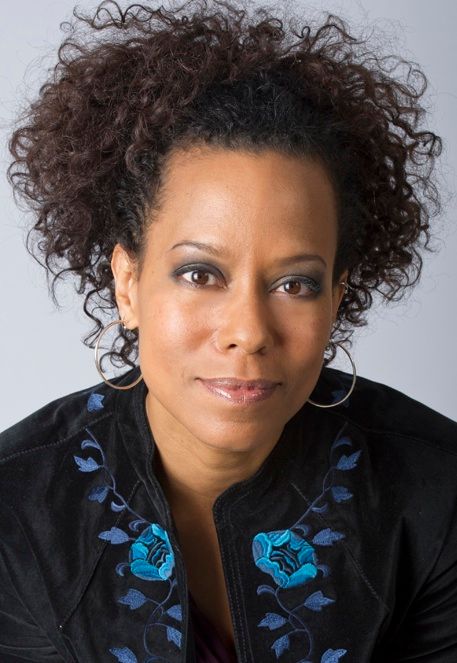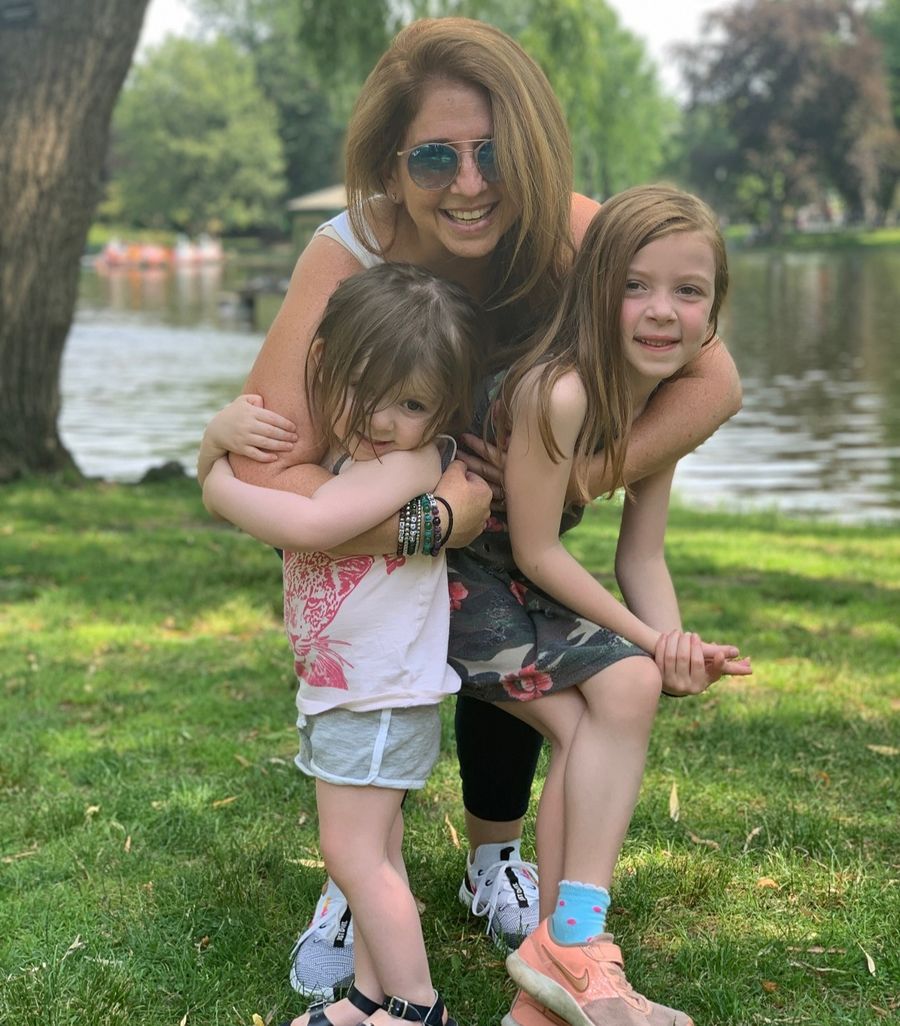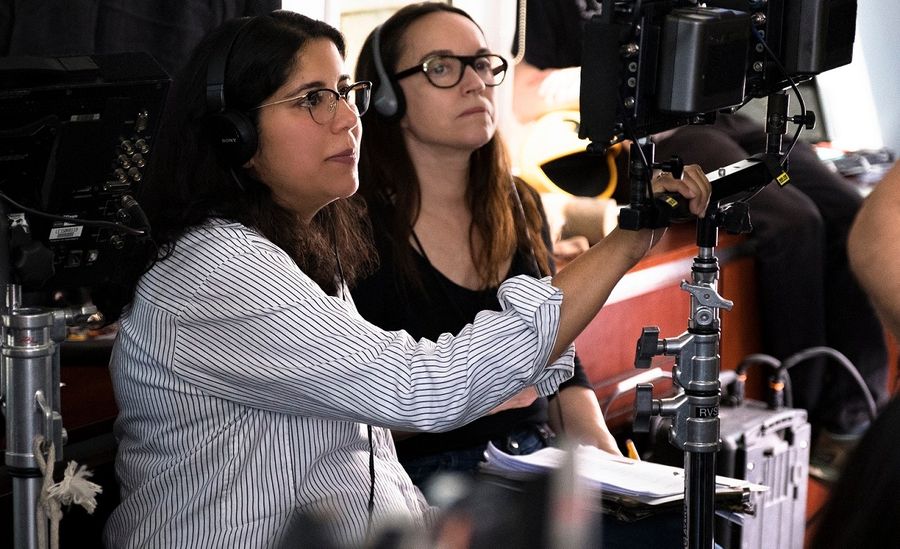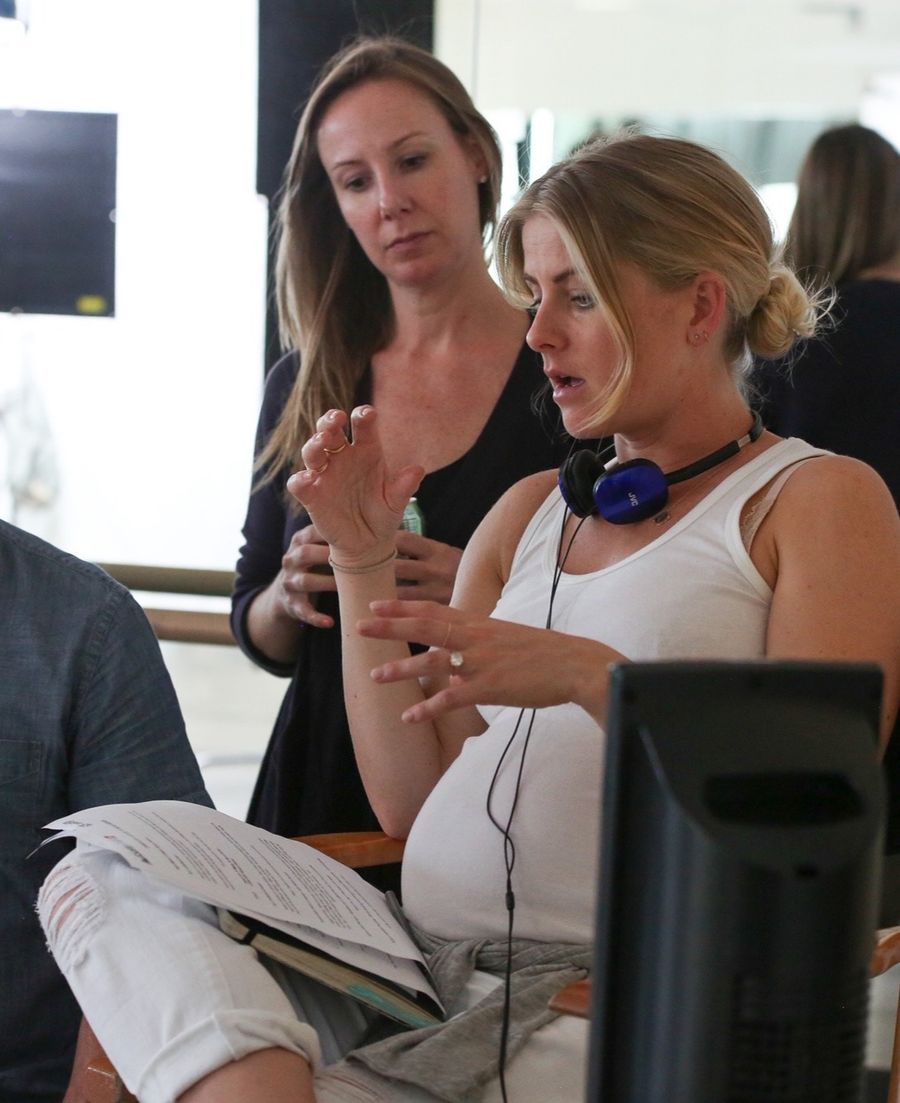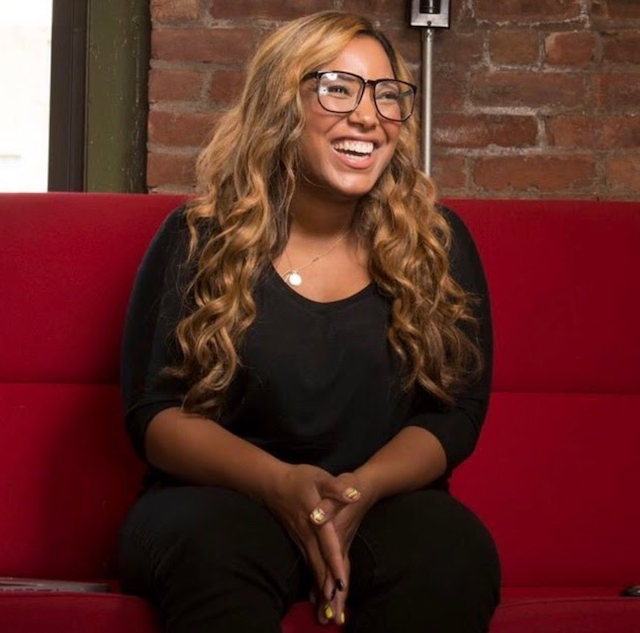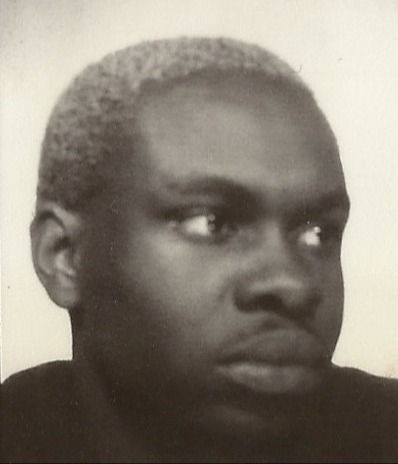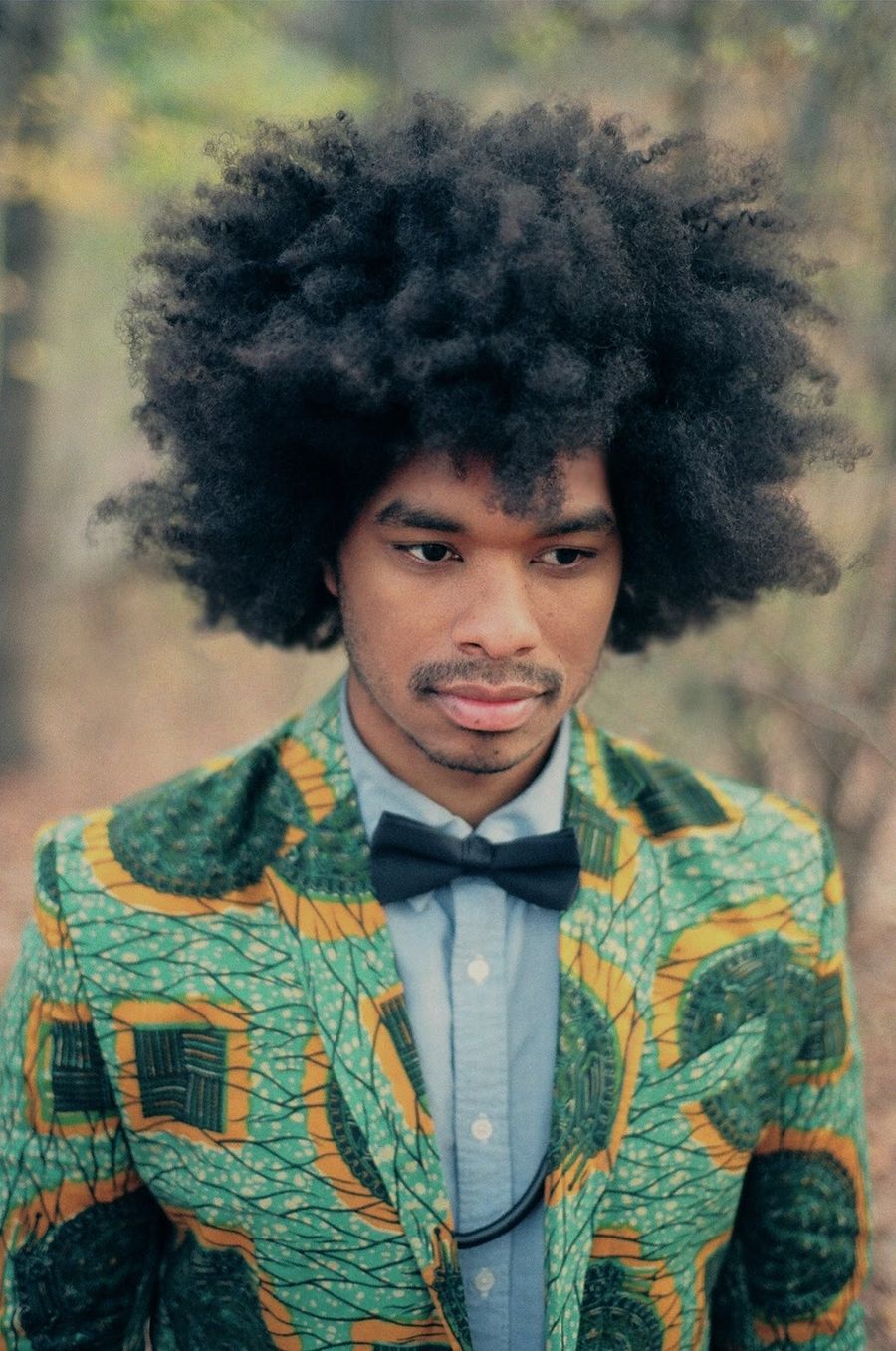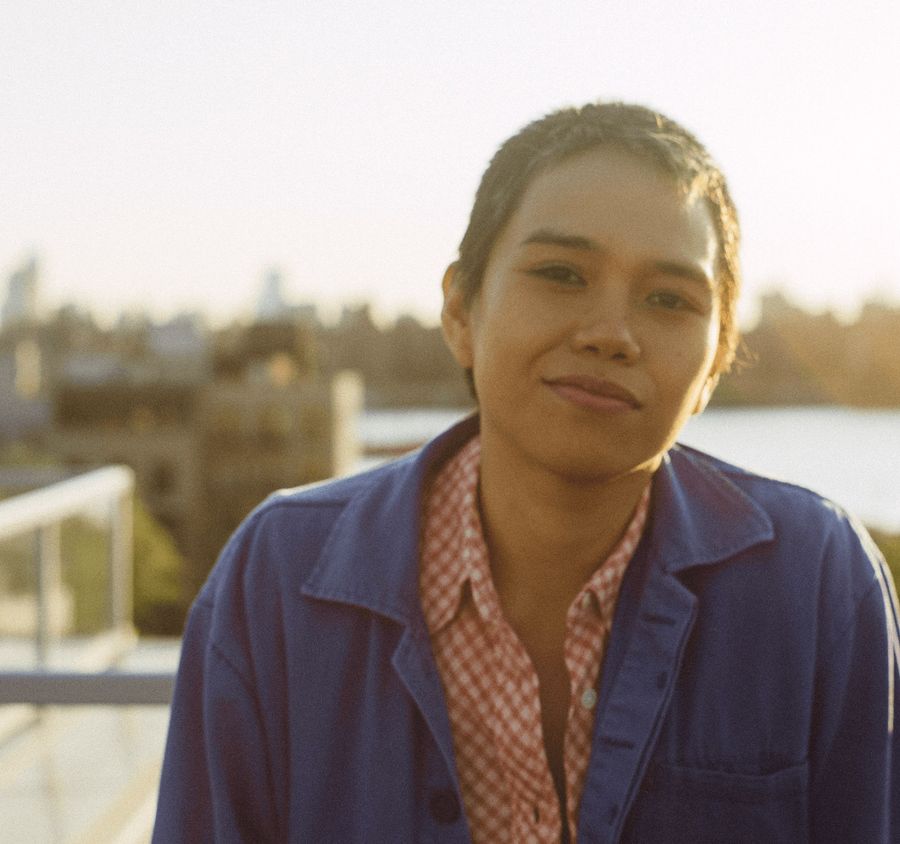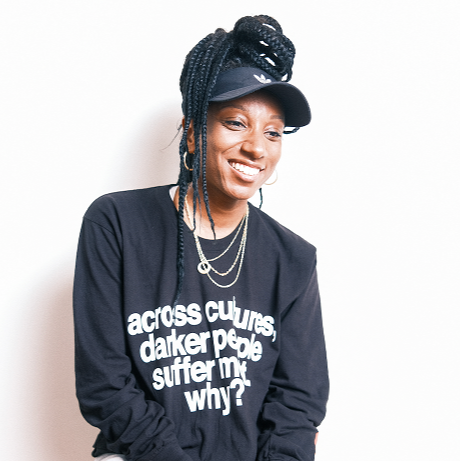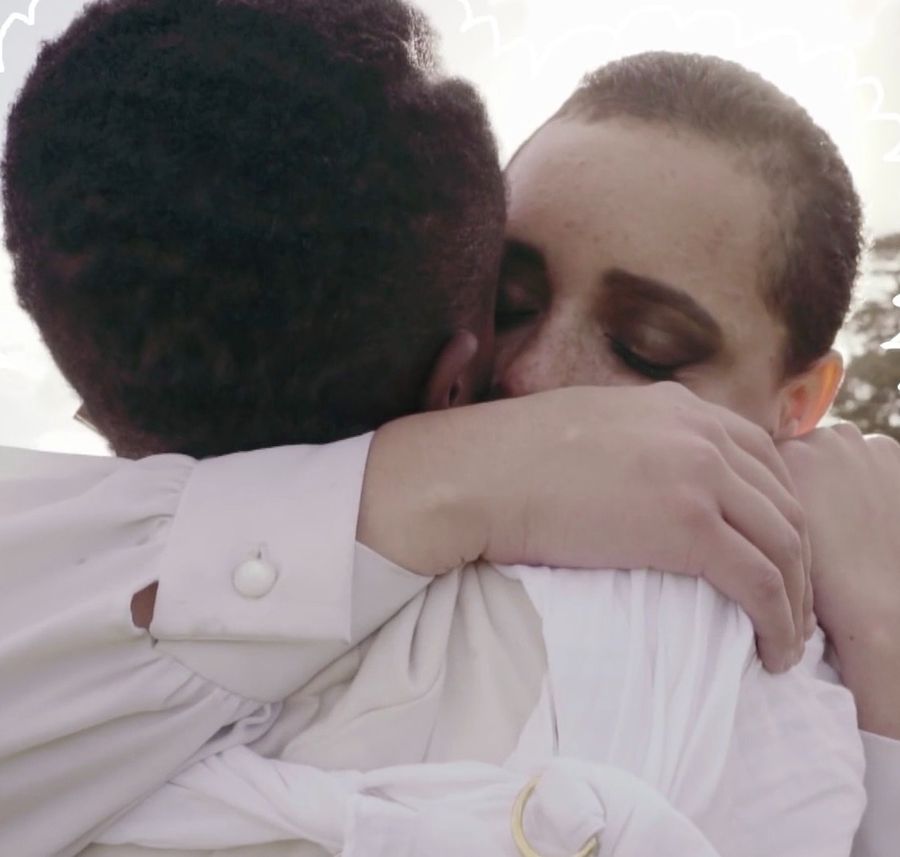Cover and Header Photo Courtesy of Vanessa Black
Whether you’re a PA or a CEO, we can all agree that our jobs are not that hard when we compare our work to the 24/7 grind of taking care of a child. Every day, parents and parents-to-be in the entertainment industry must balance the physical and financial challenges of parenthood on top of all the trials and tribulations of working on set. Some people who have a baby even return to their work weeks after giving birth. Because even in one of the richest countries in the world, healthcare benefits and protections are treated as a privilege for some, rather than a right for all.
In 2016, Director and DGA member Jessica Dimmock chose to take time off to physically recover and spend time with her baby. She then lost her health insurance, because she was not able to meet the DGA’s annual minimum earnings requirement. That’s why Jessica, in association with PL+US (Paid Leave for the United States), launched the #DGAParenthoodPenalty campaign, which seeks to extend the time span for directors to meet the DGA’s annual minimum earnings requirement in the year that they give birth or adopt a child. This way, all healthcare benefits will not be taken away from parents when they need it the most. Since its release, over 400 people, including Greta Gerwig, Ava DuVernay, and America Ferrera, have signed Jessica's letter to the DGA to improve policies for working parents.
"A lack of maternity leave will continue to be an obstacle in achieving parity in the field of directing unless corrected."
-Jessica Dimmock
As stated in a letter to the Board of the DGA, December 16, 2019
Now that we are in the swing of the campaign—FTW founder Alma Har'el even mentioned it in her recent DGA award speech—we have teamed up with mothers from all corners of the industry to shed light on the significance of the movement. FREE THE WORK interviewed Angela Barnes Gomes, Bear Eveno, Haley Geffen, Lauren Prince, Morenike Joela Evans, Nisha Ganatra, and Vanessa Black—directors, producers, and DPs who went through pregnancy and were willing to open up about the physical and logistical challenges it posed as they continued working.
Please note that not all of the interviewees that appear in this article were members of the DGA during the time that they were pregnant. The push for a DGA extension to meet yearly minimum earnings only benefits a small percentage of parents. There are a wide range of identities and forms of parenthood that exist—foster parents, guardians, and more—and we must also acknowledge that trans men can experience pregnancy as well. This article is just the tip of the iceberg when it comes to stories about the challenges of parenthood.
FTW will continue to post more content to shed light on the experiences and needs of parents. We hope that in this push for change, we can help bolster further efforts to make parenthood humane and sustainable for everyone.
After reading, please be sure to add your name to the letter to improve policies for working parents. Anyone can sign on to make this change. On behalf of working parents everywhere, thank you for your support.
"It’s not as hard to work when you’re pregnant as it is once the baby comes out. [I’d think to my baby], Oh my god, I wish you could get back in there because it was so much easier to control things when you were inside."
-Nisha Ganatra
TV & Film Director, Writer, and Producer
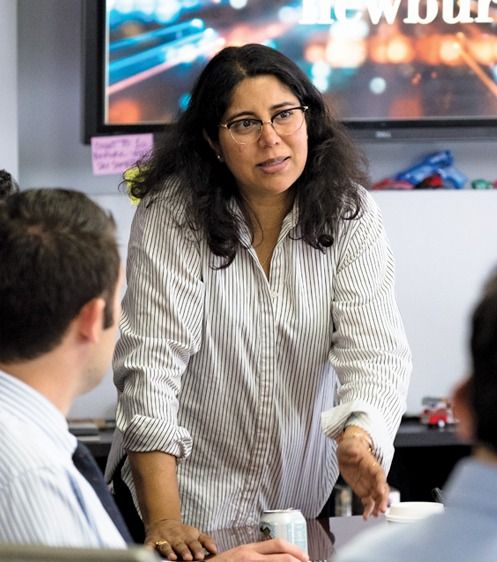
Did pregnancy impact what kind of jobs you were offered and able to take?
Angela Barnes Gomes
Episodic TV Director, Former 1st AD
Once I figured that it was safe for me to work [while pregnant], I purposely laid low for a little bit. I was 37 when I was pregnant, so that's technically a geriatric pregnancy and it took me three years to get there. So I wasn't really going to go and be on my feet for 16 hours a day knowing that the stress on my body is probably what kept me from getting pregnant in the first place. I had my first son in 2008 and I was writing and directing on My Manny, which was a branded content micro series for TBS. When my last round of scripts were due, the doctor was like, "You have to have the baby today. We have to induce you." While I was in the hospital, I had my laptop with me and I was sending the last scripts right before they were going to inject me with all the stuff to make the baby come out.
Bear Eveno
Indie Short, Feature Film DP
I was still really active, getting stuff done, writing a lot as well. But any job that was heavily handheld and any job that required traveling overseas, I turned down. I also pushed for a Steadicam [operator], and if that was a budget issue, I took a cut from my pay. Overall, people were really understanding and cool. If the budget allowed, we would have an operator, or we switched to a different kind of camera movement. During the entire pregnancy, I took jobs that were a week max. I don’t know how women do an entire feature being pregnant.
Haley Geffen
Commercial Director
No. A lot of times [the people hiring you] don't know that you are [pregnant]. But I refused to do jobs in my ninth month. I felt like it would look strange and it also didn't feel great for me to go on set when the baby was about to fall out.
Morenike Joela Evans
Episodic TV Director and Unscripted Creative Producer
During my first pregnancy, I didn’t tell anyone I was pregnant at first because I didn't want it to impact me getting hired. But as I got to about five months even though I wasn't fully showing, I told people when I interviewed for work. As a freelancer, I needed the work because I knew I'd have to not work for at least a month or two. But as a new pregnant woman, I did stuff I probably shouldn’t have done. For the 2008 Oscars red carpet, I was assigned to climb a tiny ladder to get to the roof of the Ripley’s Believe it or Not building because that’s where my producing station was even though they knew I was pregnant. I didn't feel comfortable asking for a different spot.
[After my second pregnancy], I knew I couldn't sustain the sporadic work and 18-hour days of entertainment and reality TV while also managing the needs of a baby and a pre-schooler. I took a break from TV and I used my production skills to work as the Director of Communications for an after-school program (LA's BEST), just to normalize my schedule.Nisha Ganatra
TV & Film Director, Writer, and Producer
Mindy [Kaling] had pushed production [for Late Night] because she got pregnant. So by the time we were shooting, I was pregnant. The chance to make a movie comes up so rarely that you just have to jump on it when it presents itself. I said yes to the opportunity of making Late Night without thinking, "How am I gonna do this? I’m super pregnant." It’s not as hard to work when you’re pregnant as it is once the baby comes out. [I’d think to my baby], “Oh my god, I wish you could get back in there because it was so much easier to control things when you were inside.”
Vanessa Black
Commercial Director
I tried to hide my pregnancy as long as I could. I was awarded my first one-million-dollar commercial that involved six weeks of travel. The dates kept pushing and it eventually backed up against my cut-off date for traveling while pregnant. The job ended up going away. My pregnancy isn’t why I lost the job, but it was a factor at the end as to whether or not I could be on the project. I also freelance so I took as many projects as I could during my pregnancy to afford to have maternity leave. The transition back into work post-pregnancy was an enormous transition without the stability of a traditional job.
What are some of the logistical challenges you ran into during your pregnancy?
Angela Barnes Gomes
Job interviews. On one job interview I wore a really baggy shirt and leaned forward like I was really interested in what he was saying so he couldn't see my belly. When I showed up when it was time to shoot, they were like, “Wait, are you pregnant?” I [hid my pregnancy] for two different jobs because people will make assumptions of what you're capable of.
Also as a director you get a chair and stuff. You can sit down. But some of the other jobs, you don't get to sit down so that can be tricky too.
Haley Geffen
I spent five years trying to have a child, which also involves a lot of fertility and IVF treatments. I had to base everything I was doing around being at doctor's offices and having blood tests and ultrasounds. I have a very specific memory of being in a bathroom in some random place in New Jersey and I was shooting a Mercedes commercial and I had my clients literally give me my IVF shot. And we were like, "This is going to be a moment and we're all going to remember this is where you had your baby.” I think it did lead to my first child.
Also, on one of my productions, a producer had a PA follow me around with a fan for a week because I was so hot and extra. Another time, I had to leave set in the middle of a shoot to walk around the backlot and fart. My former head of production would come with me in solidarity.
Lauren Prince
News Program Director/Producer, Journalist
There were some great accommodations that were made, especially in the latter months when I couldn't travel much. I was still able to catch and produce a lot of the breaking news stuff or things that had a more local bend to them, which was a great accommodation. It got tricky getting closer to my due date just because I couldn't lug around camera equipment. There were certain things that I couldn't do after about eight months pregnancy just because of the pure physics of it.
Morenike Joela Evans
Working in a gig economy was the most frightening part of [pregnancy and motherhood]. Especially when you are new to a group of people in production. [Living] only two years in Los Angeles—I moved from Washington D.C.—I was building my reputation every time I got hired as a freelancer by people who didn't really know me and my work ethic. I took another job producing for Miss USA in Vegas when I was seven months pregnant. It was grueling work in the heat, but I powered through and really kicked ass producing in the field. But, I didn't hydrate well and that got me in trouble one time. I had to be wheelchaired from the hotel lobby to my room and they sent a nurse up to make sure I was okay. I was embarrassed and truly scared that they were going to replace me. There's just no security in being a freelance producer, and I definitely needed the work. But luckily this was a great group of people and they had me rest for a day. I was able to safely get back to work, where I paced myself, hydrated, and continued to be awesome!
Nisha Ganatra
Directing a movie takes a lot out of you, but it’s way easier when you’re making a movie because there’s a team of people helping you accomplish your goal. Parenthood is just you trying to get this kid to do his thing and nobody’s supporting you. It’s easier with a crew.
Vanessa Black
I found more logistical issues post-birth than during my pregnancy. During my pregnancy, travel became uncomfortable and it was harder to keep motivated without coffee. That part is easy compared to balancing a child, gig economy, childcare, unusual schedules, and necessary networking. I find our culture focuses a lot on the pregnancy part of motherhood, verses the mother. After birth, an emergency c-section and a new little life I was responsible for, I felt pretty invisible in society. I can only speak for moms, but I felt pretty sidelined once I had my son and it's taken me a year and a half to feel like myself again.
Were you able to take time off before and after giving birth? How soon did you return to work?
Angela Barnes Gomes
I freelance. You work until you think you can't work anymore and then you decide not to work. Some [productions] will hold your spot for you. But if a show is only three months long, they can't really hold a spot for you because by [the time you’re able to work] the show is over. [I started working] six months after I had my oldest. I hadn't worked in so long and I needed the money. If I could have stayed home for a year, I would have, but we just couldn't afford it. Before I had a baby I was like, “Ah, six weeks and I’ll be fine.” And then [after having the baby] I was like, “Whoa.” After I adopted [my youngest], I was home for about six months too.
Bear Eveno
I'd stopped working a month and a half before my due date, just because I wanted to slow down and live the experience fully. Then, [my daughter] came in super late, so that made it two months off before she was born. That was a bit too long, and I was going absolutely insane. Then, I worked three months after she was born. [Working on commercials] was great because I could push my body a little bit for two days and then just stay at home and chill. [It must be more difficult for] women who have nine-to-five jobs, actually.
Lauren Prince
I used the full maternity package. [My company] also had the same package for men, which I was pretty impressed with. It was coming back that was difficult, even if the Family and Medical Leave Act (FMLA) guarantees either your job or a job at the same level when you come back after the 12-week period.
Morenike Joela Evans
When I was pregnant both times, I was a freelance producer, so there’s no such thing as maternity leave option for me. Nor did I know what work I'd even get from one month to the next. My strategy was to work as long as I could and I discovered that I was eligible for disability leave and benefits [for six weeks] which made my time off, my "maternity leave" less stressful. But the fact is I still didn't have a job lined up post pregnancy. I knew I needed to find work. The assumption that someone working in TV has steady work is wrong. Most freelance jobs are from two weeks to three months. Luckily, I [was hired by] a production company (7ate9) within a few months of giving birth that was very family oriented. But I do also admit to not telling people I was interviewing with that I was a new mom, because there are unconscious biases about what your dedication to a job will be if you are a mom, which is ridiculous.
Vanessa Black
I took a month off before having my son and I waited five months before going back to work. We moved across the country after our birth to be closer to family because we realized we needed our families help with the nature of my partner and my careers. It took a while to get back into networking with producers and EPs to begin getting work again. The company I was a rostered director at closed four months before my due date. Post-baby I had to hit the ground running networking to find new work. It’s all a big balance. I was really grateful to be accept to the CDDP Program, which connected me to the industry in a new way.
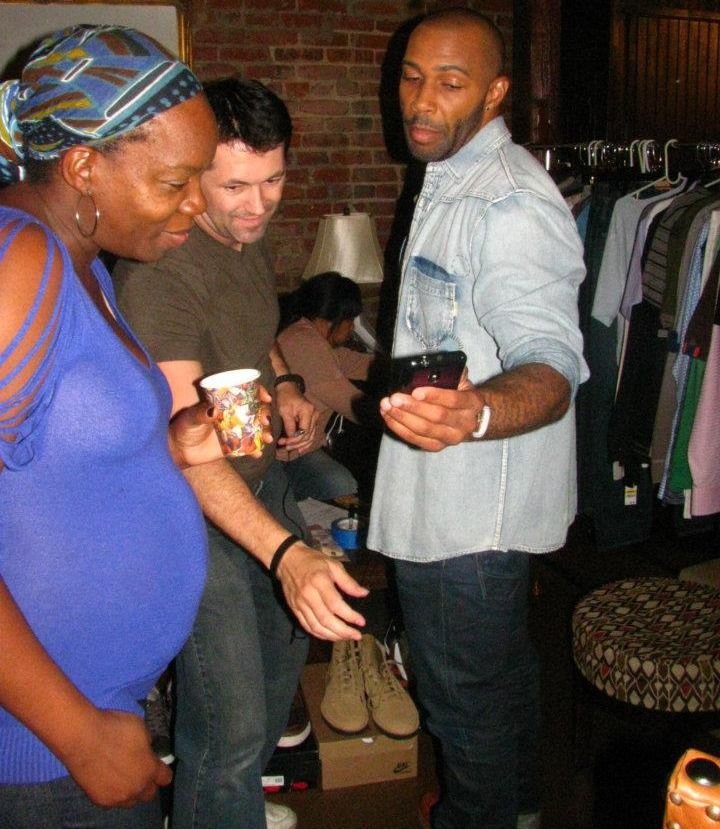
"I'm not currently eligible for healthcare as I haven't earned enough to qualify but I'm certain that as soon as I’m eligible for healthcare, the benefits will have a significant impact on my stability and I look forward to that, because it's something I haven't had in my over 14 years here in Los Angeles."
-Morenike Joela Evans
Episodic TV Director and Unscripted Creative Producer
Were you able to receive healthcare through a union?
Bear Eveno
The problem with union is you have to have an insane amount of hours [to earn enough] to even qualify for healthcare, and, to be honest, I'm French. I work to live, and I don't live to work. Healthcare was definitely a very difficult thing. You need a lot of pediatrician visits in the first six months [after birth], and a lot of vaccines are expensive. I'm lucky to be in New York. There, it’s really easy to get on Medicaid.
Haley Geffen
Luckily I have [healthcare] under my husband. He works for the Major League Baseball Players Association, so we have incredible health insurance. But otherwise I would probably have to be a part of the DGA. Most people join for health insurance benefits.
Morenike Joela Evans
As a freelancer, [I was] on my own. But I've spent the better part of the last eight years transitioning to directing for TV and I’m a member of the Director’s Guild as of 2019. I'm not currently eligible for healthcare as I haven't earned enough to qualify but I'm certain that as soon as I’m eligible for healthcare, the benefits will have a significant impact on my stability. I look forward to that because it's something I haven't had in my over 14 years here in Los Angeles. It's essential that they reconfigure the benefits formula for members who are pregnant so that they can continue to receive their health benefits.
Vanessa Black
I am not part of a union and pay for healthcare out of pocket.
Do you have a support system that helps you balance your responsibilities inside and outside of work?
Angela Barnes Gomes
[My husband at the time and I] agreed that someone would always be home while the kids were young. Now I'm divorced, so I'm a single mom with two boys and my ex-husband co-parents. I have primary custody, but he still has time with them. He's also in the business, so he understands the nature of freelance. If I'm working, they're with him. If we're both working, we figure something out. My parents live in the same city, which is very helpful. Right now I'm out of town and my ex-husband is out of town and they're supposed to babysit for us next week. I don't know how I would have been able to do this if I had stayed in Los Angeles or somewhere where I did not have family support. You either need the village or you need the cash. You need to be able to pay someone to do it if you don't have the village to do it.Bear Eveno
I have a partner who has a very flexible schedule as well. Whenever I was working, he would take care of her. That is still our situation. One time, he called me while I was on set and he was just like, "I can't. I just want to be under the bed and sleep, and she's just a demon.” As a mom, you want to do everything because you know you're going to do it faster and better than anybody else. But the more you push the dads to do stuff, the more they can do it.
Haley Geffen
I believe in spending money in order to make your life better. Even if that means I'm always kind of living on the edge, [I want] my children to have full-time care. We have to have a live-in, so we have an au pair.
"Without mothers and fathers speaking up for families, and acknowledging motherhood as a spoke in this gender equality wheel, we are not getting anywhere."
-Vanessa Black
Commercial Director
Lauren Prince
Yes. So I am married. My husband and I have been together for five years. [Hudson] is our first kid. [My husband] kept his job full-time. He has a great job and it made sense that when push came to shove, I would be the one that would ultimately put more focus on Hudson for the first couple of months.
Morenike Joela Evans
I have a great support system. I have a husband that truly supports my goals and my efforts in television and my mom who moved in with us about 3 years after my 2nd child (my daughter) was born. It's still a difficult to juggle, but it's possible. Not everyone is on "get a nanny" status financially! For both pregnancies, we had our children in day care while we were working. Now that the kids are older, they come home after school and though me and my husband both have a sporadic schedule, their grandma is home and that's less mental stress for us. Part of the balancing act is about breaking cycles of what society says a man and a woman should do in a family. I’m really grateful for how my husband has supported my goals and we work as a team, to make sure someone is there to do the important things like school performances, PTA meetings and science fairs, ironing clothes, making meals–regardless of traditional roles–we both do it.
Nisha Ganatra
Oh my god yeah I could not have done it without the help of a nanny and the babysitter.
Vanessa Black
We have a really strict budget and childcare is sort of an essential luxury. A lot of my income since having my son has gone to paying for childcare so I can continue to play the game. Freelance families that do this best have grandparents or family nearby. During production, I can easily work 15 to 20-hour days and my son would either go to San Diego to be with my mother, or my partner takes a hit on his working hours to be with our son.
This is part of why I am so excited to work with FREE THE WORK on this article. I didn’t have women around me in our business who had kids. I am actively building that community of mothers in film since having my son. I make sure to connect with women who have kids and I am vocal about my needs as a mother with the people I work with. Without mothers and fathers speaking up for families, and acknowledging motherhood as a spoke in this gender equality wheel, we are not getting anywhere.
How did you navigate pumping while working?
Angela Barnes Gomes
I had to stop pumping almost right away. On set, we're shooting in old mills. It's not like we're shooting in a stage where I would have a nice room to do that in, and it's not like I can say, "Now I need to take a break because I'm about to go." It was the stress on my body. My body was like, "What's happening? We used to chill and we'd walk around the park, but we would never be on our feet for 16 hours at a time. What's all this about?" I tried to pump but literally after about two weeks, I dried up. I just couldn't keep it up. It really made me very sad.
Bear Eveno
I would only do it in the morning when I have a lot of milk and freeze it for a month before I needed to work. So, when I went back to work, I was cool about the supply that was there. When you're far away from the baby and you're more stressed out, your milk decreases.
It was really difficult. Especially as a DP, you cannot take any time off. I barely even have time to go to the bathroom to pee, let alone take a 20-minute break every three hours.
Haley Geffen
The pumping stuff is funny. I have memories of being on trains and planes and doing it in the bathroom. I took the pump and I was staying in my executive producer's house and I remember being mortified. I was in his home and I thought the whole thing was crazy and there was milk spraying out of my boobs.
Morenike Joela Evans
I pumped in my office. It was still weird because you’re getting phone calls, you’re getting someone knocking at your door. [Pumping] is kind of embarrassing, regardless of your situation. It takes too long, and the pump makes a lot of noise. And you have this bottle of your personal liquid that you’re trying to get to the fridge. It’s very awkward regardless of your situation, unless you have your private fridge and your own office. Even [when I was working at] City Hall, the pumping room was just…not great. It was maybe an old closet that they just repurposed by the bathroom.
Nisha Ganatra
We were doing these crazy press tours and every two hours I’d have to stop and find a bathroom to pump and get breast milk to the baby. Or someone would bring them to me and we’d hold up a big parka and I’d breastfeed while I was doing interviews. That was intense and hilarious. Pumping in the van is the worst. I hate it. Rachel Morrison had our key grip build a little platform and she pumped while she’s on the dolly. She pumped while she’s shooting.
Vanessa Black
Nursing is a natural part of mothering and it has its own biological schedule. I needed to pump or nurse every three hours with my boy, and that can take 20 minutes. I jumped back into producing before going back to directing in part because I could pump in my car throughout a shoot day or pre-pro. I ultimately stopped breastfeeding when I went back to directing. Between scouts and set, I didn’t know how to carve out an hour and a half with an AD to pump when I typically have a hard time taking a 30-minute lunch.
"Being a mom made me a much better director. I don't know if I would be able to give the kind of notes or references [I give] to actors if I hadn't had the experience of trying to raise these kids . . . It just opens up another part of the world that you never saw before."
-Angela Barnes Gomes
Episodic TV Director, Former 1st AD
Other than finding support through childcare, what are other ways you take care of yourself and find a balance?
Angela Barnes Gomes
I don't know. I'm still kind of figuring that out, too. I was going too hard because I was taking care of everybody else around me and not taking care of myself. The main point for me is that there's no right or wrong way to do it. Everybody has to figure out what's right for their own self and then find that balance. Don't let anybody else tell you what to do. There is no right way. What's best for me is showing my boys that I love them and setting an example of how to be a badass in the world. And all the rest, we'll figure it out.
Bear Eveno
I’m still trying to find the balance. I'm obsessed with my little girl and I'm crazy overprotective in a lot of ways, but still, when I walk away and I leave her with someone for work, I feel light and fun again. Then I feel like I'm a better mother to her when I come back, and I'm so happy to see her, and I missed her, and then it's fun again.
"For me, a major accommodation would be an agreement or some sort of a tiered process to reentering the workforce, full time. What I'm doing right now is I've turned to freelance work full time, which is a little easier."
-Lauren Prince
News Program Director/Producer, Journalist
Haley Geffen
I always make sure that I can control my shoot days for the most part. If a client wants you to be the director, I always have a say in when those dates are. Actually, one time, I made sure that the shoot dates would allow me to fly back and be there when [my daughter] came home from school on her first day. Then, I shoot the next day again.
I also work out. Aside from working out, sleep is the most important thing that allows me to be successful. So I try and go to bed by 10:00 and I'm up by 6:00. Either I'm awoken by a child that looks like a poltergeist in my face, or I wake up on my own to work out.
Lauren Prince
In the first couple of weeks [after pregnancy] you're not doing anything for yourself. But the one thing that I wanted to accomplish every day for my own sanity was to walk down the street. I wanted to go to Blue Bottle and read the New York Times every day. That was the one thing that I could do to preserve my sanity and at least feel like I was keeping up with the world and not just focusing on, "Okay, how do I transition him to solids? How much tummy time is enough tummy time?"
Morenike Joela Evans
In terms of self-care, something that really worked for me was I renting my own office space. I needed a place where I could exhale and could concentrate without interruption and the worry about my papers being turned into kids art! I advise that or a work-share situation for those of you mothers who are also writers/producers. It's almost impossible to get work done at home if your kids are a certain age, because if they know you're there, they'll come to you for any and everything! Taking time out for you as a mom is important.
When I’m home between gigs, I dedicate that time to doing extra family activities that I couldn't do as much when I was on my project. When I was off, we do extra family things. It’s really about balancing your life. I also became very intentional about the jobs I take. I'm now in a position where I'm getting re-hired by people because I've built my network. The ability to work remotely sometimes and adjust my day are great—if people know you're gonna get it handled, they don't freak out if you leave work at 5 or 6 p.m. because you're gonna hop back on to it at 8 p.m. if necessary to get the work done. A big question people ask is, "Can you have it all?: Yes you can. It depends on the type of life you want for yourself. You can't be everything to everyone all the time, but you can find balance. It also depends on what your "all" is—everyone's is different and we just need to stop judging women's choices about that.
Vanessa Black
Weekend nap-time is free self-care time. I’m reading, stretching, and taking me time. Building community with other families has been incredible and makes me feel connected to people who can relate to the unique challenges of family. Getting back to the things that make you feel like you and connect you with your partner are the most important. Your baby is best cared for when you care for yourself, too.
What are some other protections you would want for mothers in this industry?
Angela Barnes Gomes
I have friends that are moms who are ADs that job share. Job sharing is just staggering what days you have to be on set [with another person]. People only work every other episode and then every other episode they're home. Job sharing works not just for working moms but also [for people who are] trying to hustle. If you're producing low-budget features and just need to get your benefits, job sharing can help you with that because you can actually have the bandwidth to get other stuff done. [The ability to job share] depends on the job. As a director, I can't job share. But [what I want is to] change the culture, so that if someone says, “Hey, I'm not going to work that day,” you don't assume that they're going to not want to work down the road. Don't make assumptions what they are or aren't capable of.
Also, when I'm directing, I usually average about 12-hour shooting days, then go home and work for an hour or more prepping for the next day. Why are we working that hard? There's no reason we can't have 10-hour days on every show. As a single mom it's really hard because I don't see [my kids].
Bear Eveno
A childcare line item is so awesome. Though, I really do think [accommodations for mothers] is a huge, systematic thing to tackle. The unions can pressure for stuff, and they always do, but then the reality is, then, the production goes non-union, which is difficult for [the unions]. It’s not just an issue for our industry to fix. It's an issue for the entire country to fix.
Haley Geffen
I love the idea of having a family allotment, specifically when the job is a long and you have to go there to cast. That means I have to leave my family an extra five days before to get there to do callbacks. Or I can go there, fly home, and then go back for the shoot, which is insane. Having family with you helps you feel like you're not missing as much or that the children aren't missing you. It's really for your children.
Lauren Prince
For me, a major accommodation would be an agreement or some sort of a tiered process to reentering the workforce, full-time. What I'm doing right now is I've turned to freelance work full-time, which is a little easier. Parenthood also alters how we think about equity and equal pay in this industry. Thinking about how men are paid versus how women are paid is different when you consider what kind of support parents need to get by.
Morenike Joela Evans
Productions providing childcare near their sets—the same way they provide teachers for the kid actors—could make a huge difference. I've never experienced it, but I know there are childcare centers on some lots, like at Paramount.
The other issue I just want to bring up is that most [childcare facilities close at 6 p.m. I don’t know anyone in any industry that’s done working at 5 p.m. So you have to pay a certain amount for every minute that you’re late. I really hope that as things progress, staggered pickups, like from 6 to 8 p.m., are a thing. This is for all moms, not just those in the entertainment business. The stress of racing down the highway to not be late picking up your child, or being shamed because you're five minutes late and had to work are so real.
Vanessa Black
I’ve started asking my producers to add a line item for my childcare on shoot days. It is similar to the fee for a PA and gives me peace of mind. It does not cover time bidding or prepping a job and it doesn't cover the crew, but it is a step in the right direction. It's an acknowledgment that childcare is part of working families needs. Shout out to Meagan Judkins of Fox & Leopard to be the first company I’ve ever worked with to pay my childcare for a shoot.
I would love a line item for childcare [on more sets]. I know men and women with children whose families would be better off if our industry recognized the needs of working parents. If the state won’t help with childcare, I hope the brands we work for will see and support this need. My dream is to provide daycare for my crews during production. Childcare in general feels like a taboo topic in America and also gets into bigger conversations about access, privilege, and gender roles.
Looking back, how did pregnancy impact how you think of yourself and your career?
Angela Barnes Gomes
Being a mom made me a much better director. I don't know if I would be able to give the kind of notes or references [I give] to actors if I hadn't had the experience of trying to raise these kids. It doesn't mean that people who don't have kids are not capable of that. But there's so much nuance. It's a different kind of love, and it's a different kind of perspective. It's the same as someone who's never been out of the country. It's not to say that if you have never left the country, you don't know something. It just opens up another part of the world that you never saw before.
Bear Eveno
We do so much to further our careers, right? Don't let the career sort of push it so far that you might regret it. Honestly, it didn't hurt my career whatsoever. When you have a kid, everything you do is for somebody else you love. It gives you wings. It gives you fire. It gives you fuel. You actually, I think, accomplish more. I wake up way earlier. I do way more things. I'm way more efficient, and there's a drive that is actually larger and more powerful than myself.
Haley Geffen
I figured out that we can actually do what we love and be directors and have children, which is something you don't know until you go through it. You become more motivated in going back to being a regular person. When your baby's grown up a little bit and you're no longer pregnant, you're like, "Oh, fuck, I can do this." Then you go back to being super career-driven.
Lauren Prince
If I'm really honest, part of my struggle in becoming a new mom was learning just how much my work was a part of my identity. It's been a great wake-up call because it's just really invigorated my spirit for wanting to get back into the industry and find ways to creatively be employed on different projects again. Having a kid actually made me realize what I want out of my career.
Vanessa Black
Parenting gave me newfound purpose, incredible time management skills, and common ground to bond with other people in the industry. I feel more grounded, clearer on my goals, and more intentional with my time. This might be sad to say, but it also eliminated some of the unwanted grey area in working in such a male-dominated industry as a young woman. There are new challenges that I still struggle with—like being child-free for floating client calls or booking extra childcare time for treatments—but overall it has been a positive change.
Morenike Joela Evans
I’m in a place as a filmmaker where I know the value of me and everything that I’ve experienced and what it brings to any production. A lot of the times, there’s misconceptions that moms are not gonna work as hard. But when I’m in the office, I’m working, not hanging out and chitchatting. As a mom I really learned how to effectively multitask and make decisions, and that strengthened my skills as both a producer and director. I've even begun teaching classes on producing—and soon directing—so that I can give back to the upcoming generation as I transition to directing.
I got my first film in 2018. After that, I got my first television episode for Netflix. I was actually able to pull on my experience as a wife and as a mom to inform the script. When I’m working on shows for Netflix and Disney, I know how to work with kids. I’ve been pushing towards this career and it’s important that my children see this. I want my son and my daughter to see that you can pursue your own passions and participate in a loving family.
Also, there’s an important misunderstanding when it comes to even being able to join the DGA. In the Director category, you don't have to earn a certain number of hours the way you have to in other positions in order to qualify to be in the DGA. If you are chosen to direct a TV show or film that is a DGA Signatory—which for me, was Family Reunion on Netflix—you are automatically eligible to be in the Director’s Guild. Once I did the show, I became a part of the DGA. Meg DeLoach, the showrunner of Family Reunion, made a point of nurturing and hiring new directors.
That’s why it’s a big deal when people put themselves on the line [and hire new directors]. They get us into the Guild. They add stability to our non-stable lives. Sometimes studios or execs use your DGA status as an excuse to keep you out. They say, “Oh we can’t hire you, you’re not DGA.” Others really don't know the rules. Actually they can hire you as a director if they believe in you, and then you become DGA.
Working mothers can do it all because that's what we do. We add value to any production. People tend to want to decide what you're capable of or what you should be doing, and that's simply not their place. It's discriminatory and can mess with the livelihood of a family that wants to thrive. Most families across the board need to be two-income families, while others want to, and there truly is no greater motivation for working than having to provide for your family.
Angela Barnes Gomes
Angela is a DGA Episodic TV Director that transitioned into directing after over 10 years of working as an episodic 1st AD. Her first shot at directing episodic TV was on the last season of the sitcom "Eve." Since then, she wrote and directed the single camera microseries, "My Manny" and "Gillian in Georgia" for TBS, as well as directed on the BET sitcom, "Let's Stay Together." She was chosen as a fellow for the 2014 – 2016 class of the ABC/Disney director program and signed with the Brant Rose Agency in 2015. In 2016 she was chosen as a fellow for the Fox Global Directors Initiative, and later was selected for the Fox Comedy Apprentice Program. Recently, she directed an episode of the Nickelodeon sitcom, "Nicky, Ricky, Dicky and Dawn" followed by an episode of the new BET drama, "The Quad." Angela is known on most sets for her quick wit, generous spirit and intolerance of mean people. She mentors several young filmmakers and is active with several Atlanta and LA based film organizations.
Lauren Prince
Lauren Prince is a Director/Producer who’s worked on VICE News Tonight, a new evening broadcast on HBO. Previously, she was a reporter at NBC News working on breaking news coverage across all NBC Newsgroup platforms: NBC News, MSNBC, CNBC, E! News, Telemundo, The Weather Channel, NBCNews.com and MSNBC.com. She was a member of the team that earned a Peabody on coverage of ISIS and was also recognized with an Emmy for coverage of the Malaysian Airlines Flight 17. Lauren contributed to all digital platforms for breaking news coverage and with original reporting, and she supported the newsgroup's digital newsgathering by confirming and clearing user generated content for network use. Additionally, Lauren pitched and produced original reporting for digital platforms. Most recently, she co-produced an NBC News special report on male victims of the sex trafficking industry. Key skills include breaking news and newsgathering, writing and reporting, editing, shooting, photography, and social media.
